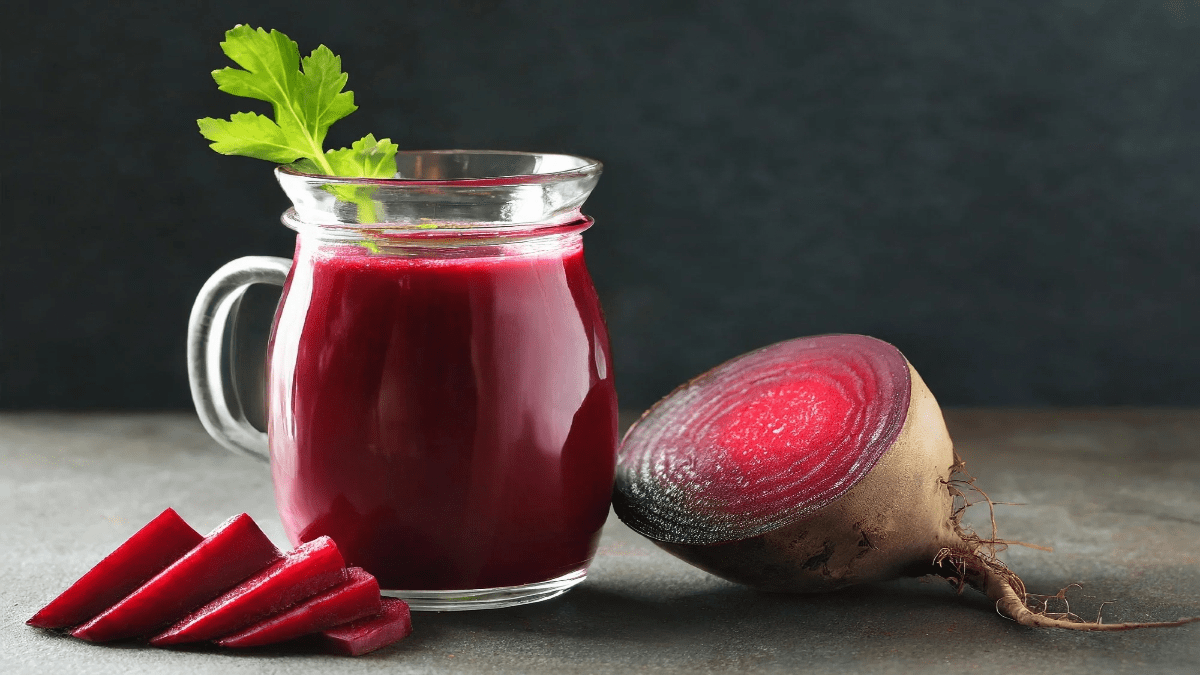Beetroot juice, with its vibrant hue and earthy flavor, has been gaining popularity as a health tonic in recent years. But what exactly happens if you incorporate this ruby-red elixir into your daily routine? Let’s delve into the potential benefits and considerations of making beetroot juice a part of your everyday diet.
Nutritional Powerhouse
Beetroot juice is packed with essential nutrients that can positively impact your overall health. It’s rich in vitamins, minerals, and antioxidants, including vitamin C, potassium, folate, and manganese. Additionally, beetroots are a great source of dietary nitrates, compounds that have been shown to have various health benefits.
Improved Athletic Performance
One of the most well-known benefits of beetroot juice is its potential to enhance athletic performance. The nitrates found in beetroot juice can improve blood flow and oxygen delivery to muscles, which may lead to increased endurance and exercise efficiency. Studies have shown that athletes who consume beetroot juice before workouts or competitions may experience improved performance and reduced fatigue.
Better Blood Pressure Management
Regular consumption of beetroot juice may also contribute to better blood pressure management. The nitrates in beetroot juice are converted into nitric oxide in the body, which helps to relax and dilate blood vessels, thereby lowering blood pressure. Several studies have demonstrated that drinking beetroot juice can lead to significant reductions in both systolic and diastolic blood pressure, particularly in individuals with hypertension.
Enhanced Cognitive Function
The potential cognitive benefits of beetroot juice have garnered significant attention in recent research. Nitric oxide, produced from the nitrates in beetroot juice, plays a crucial role in promoting healthy blood flow to the brain. Some studies suggest that regular consumption of beetroot juice may improve cognitive function, including memory, decision-making, and reaction time. These cognitive enhancements are attributed to the improved blood flow and oxygenation to the brain.
Support for Digestive Health
Beetroot juice contains dietary fiber, which is essential for maintaining a healthy digestive system. Fiber promotes regular bowel movements, prevents constipation, and supports the growth of beneficial gut bacteria. Additionally, the betaine compound found in beetroots may help protect the digestive tract and promote liver health.
Considerations and Precautions
While beetroot juice offers numerous health benefits, there are a few considerations to keep in mind:
- Sugar Content: Beetroots are naturally high in sugar, so consuming large quantities of beetroot juice may not be suitable for individuals monitoring their sugar intake, such as those with diabetes.
- Staining: The vibrant pigments in beetroot juice can stain your teeth and urine temporarily. Drinking beetroot juice through a straw and rinsing your mouth with water afterward can help minimize staining.
- Digestive Effects: Some people may experience digestive discomfort, such as gas or bloating, when consuming beetroot juice in large amounts. Starting with a small serving size and gradually increasing it can help mitigate these effects.
- Medication Interactions: If you’re taking medications for blood pressure or erectile dysfunction, consult with your healthcare provider before adding beetroot juice to your daily regimen, as it may interact with certain medications.
Incorporating beetroot juice into your daily diet can offer a plethora of health benefits, including improved athletic performance, better blood pressure management, enhanced cognitive function, and support for digestive health. However, it’s essential to consume it in moderation and be mindful of any potential side effects or interactions with medications. As with any dietary change, consulting with a healthcare professional is advisable, especially if you have any underlying health conditions or concerns. So, raise a glass of beetroot juice to your health and well-being!

